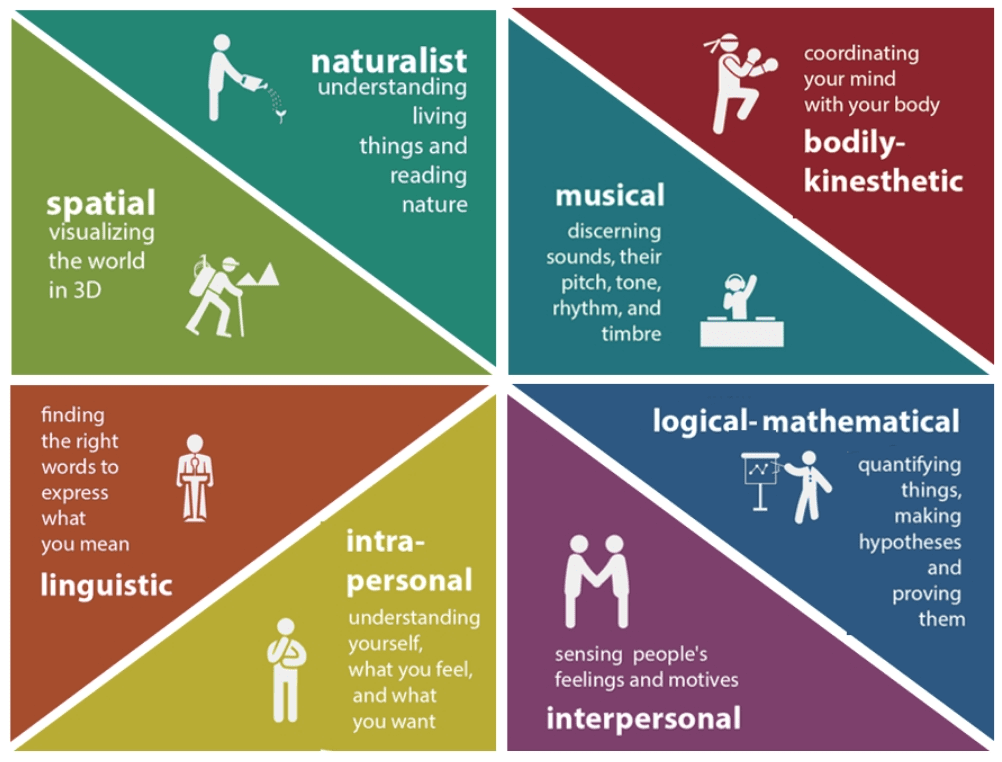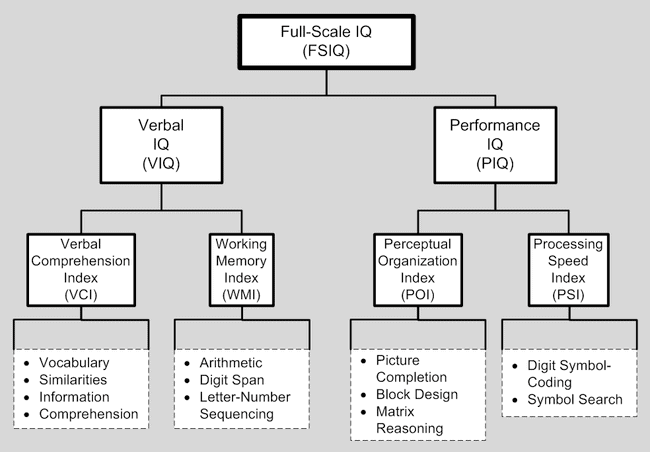Would you rather be wise or intelligent? Most people would say, “both.” On this page, we will briefly look at wisdom vs intelligence and what some of the greatest minds have to say about being "smart."
Are Wisdom and Intelligence the Same?
Wisdom and intelligence are both considered to be positive qualities involving the brain. But these are often used interchangeably, which isn’t exactly correct. These two terms are more accurately associated with the mind, and they are just pieces in larger theories of psychology.
What Is Wisdom?
Let’s look at how the dictionary defines wisdom. The Merriam-Webster Dictionary defines “wisdom” as the “ability to discern inner qualities and relationships,” or “good judgment.” The Cambridge Dictionary offers a similar definition, although it clarifies that one uses knowledge or experience to make decisions and judgments. Often, these decisions and judgments have to do with “right” and “wrong.”
When I ask you to picture a person who is “wise,” who do you picture? It might be your grandparents. Or an old philosopher. Maybe it’s the owl from Winnie the Pooh. Either way, it’s probably someone older. Our culture tends to associate wisdom with age.
At what age do you “gain” wisdom? When do you have a sense of right or wrong? That last question is not always easy to answer. Earlier developmental psychologists believed that children had a sense of right and wrong before they could read. But the reasons they have given for their conclusions don’t always take context, intention, or the cognitive abilities of the child into consideration. If a child associates punishment with “wrong” behavior, have they truly developed a sense of right and wrong?
Wisdom in Psychology
For many, wisdom isn’t just about having knowledge. It’s about seeking knowledge, and using it in different ways. Aristotle believed that wisdom could be used to seek truth and explore things that were bigger than ourselves. He also believed that wisdom could be used to make good decisions in everyday life.
More current theories of wisdom focus more on the practical application of wisdom. For example, American psychologist Robert Sternberg has developed a “balance” theory of wisdom. He defines wisdom as “the use of one’s intelligence, creativity, common sense, and knowledge and as mediated by positive ethical values toward the achievement of a common good through a balance among (a) intrapersonal, (b) interpersonal, and (c) extrapersonal interests.”
Wisdom, according to Sternberg, requires more than just intelligence. And he argues that wisdom could be more important than intelligence. He says, “Although currently, our societies tend to emphasize analytical intelligence in their assessments of individuals in school, college, and beyond, one could argue that assessments of wisdom would be more valuable. When citizens and leaders fail in the pursuit of their duties, it is more likely to be for lack of wisdom than for lack of analytical intelligence.”
What Is Intelligence?
Wisdom could be more important than intelligence. But, as Sternberg says, college admissions officers aren’t exactly looking for the wisest students. They’re looking for scores that access a student’s intelligence.
Intelligence is more likely to be tested than wisdom. It certainly appears to be easier to test than wisdom. But as you’ll see, intelligence tests may not be what they’re cracked up to be.
Before we dive into intelligence, let’s talk about the definition of this term.
Merriam-Webster defines intelligence as “the ability to learn or understand or to deal with new or trying situations.” Cambridge says it’s “the ability to learn, understand, and make judgments or have opinions that are based on reason.” Whereas wisdom is based on right and wrong, intelligence deals more with practical facts.
Intelligence in Psychology
Robert Sternberg also has a theory of intelligence, known as the “Triarchic Theory of Intelligence.” He also agrees that intelligence deals more with practical decisions in everyday life. His theory suggests that “successful intelligence is made up of three types of intelligence:
- Analytical intelligence (the ability to solve problems)
- Creative intelligence (the ability to use experience and skills to adapt to new environments)
- Practical intelligence (the ability to adapt to changing environments)

Sternberg is not the first psychologist to propose that there are multiple types of intelligence. Some might say that his theory is a response to Howard Gardener’s theory on the nine types of intelligence. These types include verbal-linguistic intelligence, musical intelligence, and bodily-kinesthetic intelligence.
Measuring Intelligence in Psychology
These theories of multiple intelligences are relatively new. One could argue that they are a response to the way that intelligence was defined and measured throughout the 20th century.
The first intelligence test was developed in 1904, the same year that “general intelligence” was introduced by British psychologist Charles Spearman. But the tests that we use nowadays look very different than the original IQ tests. Modifications to the tests have attempted to adapt to the changing world, as well as overcome racial or cultural biases that were present in earlier versions of these tests.
We can measure a culture's intelligence throughout time and see that in the past millennia, it's been increasing, mostly due to nutrition and education. This is called the Flynn Effect.

IQ tests still exist today, including the popular Wechsler Adult Intelligence Scale. But as psychologists explore different types of intelligence, one number doesn’t always seem sufficient to measure your ability to understand the world.
Wisdom Vs Intelligence Examples
Reddit posters have some great examples to illustrate the difference between wisdom and intelligence:
- "Intelligence is knowing that Frankenstein was the doctor. Wisdom is knowing that Frankenstein was the monster.
- "Intelligence is how efficiently knowledge can be absorbed. Wisdom is how efficiently knowledge can be applied."
- "Intelligence is the ability to answer questions, Wisdom is asking the right ones."
Gardener’s theory of multiple intelligences has been around since the 80s, but like the definition of measurement of intelligence, it continues to change. In 2009, Gardener proposed that a “moral” intelligence could also be included in his list of multiple intelligences.
Would you consider “moral” intelligence to be wisdom? Or, like Sternberg, do you believe that wisdom requires more than intelligence: it requires creativity, common sense, and other types of knowledge?
Let’s sum things up.
If people consider you to be wise, it’s likely that they consider you to be intelligent as well. But you can be “intelligent” without being wise. Someone can acquire a lot of skills and knowledge without having a moral compass. Knowing the difference between right and wrong, and using that knowledge to make decisions, is what makes you wise.
How to Gain Wisdom vs Intelligence
We gain intelligence from our life experiences. Reading a book increases our intelligence. Going to a music class increases our intelligence. Working in the garden alongside our grandparents increases our intelligence. We may develop intelligence in different areas, but all of these experiences bolster our intelligence. From our intelligence, we can recite facts, complete tasks, and solve problems.
Wisdom is gained from other types of life experiences. Let's say you are gardening alongside your grandparents and they begin to tell you about their life. You hear about how your grandfather fought in the war and how the country's mindset changed before and after that time period. They share wisdom on human nature, love, and kindness. They may be passing on their wisdom to you, but this retelling does not make you wise. You gain wisdom when you think through that information in your mind and apply it to the world you are living in. When you encounter situations with your friends or family, you step back. How do the experiences of other people change your perspective? What information could you not know? Asking these types of questions, and searching for the answers, is a sign of wisdom.
Quotes About Wisdom vs Intelligence From the Greatest Minds
The search for wisdom vs intelligence never ends. The following quotes about wisdom, intelligence, and knowledge may point you in the direction of some of the world's greatest minds and most important literature. Keep thinking, keep learning, and keep searching!
Quotes About Wisdom
"The only true wisdom is in knowing that you know nothing." -Socrates
"By three methods we may learn wisdom: First, by reflection, which is noblest; Second, by imitation, which is easiest; and third by experience, which is the bitterest." -Confucious
"Knowledge comes, but wisdom lingers. It may not be difficult to store up in the mind a vast quantity of facts within a comparatively short time, but the ability to form judgments requires the severe discipline of hard work and the tempering heat of experience and maturity." -Calvin Coolidge
"It is impossible to love and be wise." -Francis Bacon
"Wisdom is the reward you get for a lifetime of listening when you'd have preferred to talk." -Doug Larson
"It requires wisdom to understand wisdom: the music is nothing if the audience is deaf." -Walter Lippmann
"Knowledge is proud that it knows so much; wisdom is humble that it knows no more." -William Cowper
"A wise man is superior to any insults which can be put upon him, and the best reply to unseemly behavior is patience and moderation." -Moliere
"Turn your wounds into wisdom." -Oprah Winfrey
"To be satisfied with a little, is the greatest wisdom; and he that increaseth his riches, increaseth his cares; but a contented mind is a hidden treasure, and trouble findeth it not." -Akhenaton
"Wisdom is not wisdom when it is derived from books alone." -Horace
"A smart man makes a mistake, learns from it, and never makes that mistake again. But a wise man finds a smart man and learns from him how to avoid the mistake altogether." -Roy H. Williams
Quotes About Intelligence
"Knowledge is of no value unless you put it into practice." -Anton Chekov
"The man of knowledge must be able not only to love his enemies but also to hate his friends." -Friedrich Nietzsche
"The test of a first-rate intelligence is the ability to hold two opposed ideas in mind at the same time and still retain the ability to function." -F. Scott Fitzgerald
"The measure of intelligence is the ability to change.” -Albert Einstein
"Whatever the cost of our libraries, the price is cheap compared to that of an ignorant nation.” -Walter Cronkite
"An intellectual is someone whose mind watches itself. I like this, because I am happy to be both halves, the watcher and the watched. 'Can they be brought together?' This is a practical question. We must get down to it. 'I despise intelligence' really means: 'I cannot bear my doubts.'" -Albert Camus
"It takes something more than intelligence to act intelligently.” -Crime and Punishment
“Men have called me mad; but the question is not yet settled, whether madness is or is not the loftiest intelligence– whether much that is glorious– whether all that is profound– does not spring from disease of thought– from moods of mind exalted at the expense of the general intellect.” -Complete Tales and Poems
“If we encounter a man of rare intellect, we should ask him what books he reads.” -Ralph Waldo Emerson
“Crazy people are considered mad by the rest of the society only because their intelligence isn't understood.” -Wei Hui



